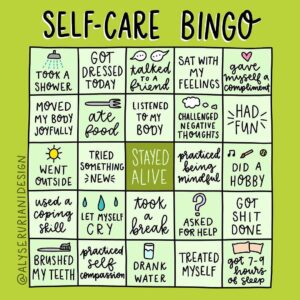Being a Ment-ern
Collaborate, Coworking, Women Who Cowork, Work-Life BalanceFrom: Emily and Juan
For the past few months, we have had the pleasure of interning at Ment Cowork. Both of us have learned so much in our chosen field. This blog post will focus on what each of us have gained from interning at Ment on an individual level and how we plan to take that into our future endeavors.
Emily Jones: Digital Media intern

I have been interning at Ment since February. As soon as I walked into our space here on 911 College Street, I could tell it was special. I was noticeably nervous because I had been on the internship hunt for a while with no luck. I was starting to get anxious because I felt like I had no experience in my field and I was falling behind my peers in my major. However, I knew from early on that Ment was where I was supposed to be. The atmosphere here was something that inspired me when I came in every day. The people I work with were all excelling in their field, so I had to bring what I had to the table.
I have learned so much during my time at Ment. Coming in, the only experience in public relations I had was working social media for a festival back home—so not much when I began to compare myself to some of my friends who had two or so internships under their belt already. I was able to apply some of the things I was learning in class to what I was doing at Ment. Most of my duties here at Ment were tied to social media and writing this blog right here. My writing abilities have strengthened tremendously and I feel confident planning monthly social media themes and calendars. However, the majority of my growth has been on a personal level. I have become more confident in my abilities. I have been able to grow and come out of my shell. I feel more comfortable talking to people who I may be pitching to or speaking with across the table at a Chamber of Commerce event.
As far as the rest of my time in Bowling Green goes, I have one more year at Western Kentucky University and will graduate in May 2020. I am majoring in Public Relations and minoring in Digital Advertising. My plan for after graduation changes daily so who knows where I will end up. I have loved interning at Ment beyond words and I hope that you have enjoyed reading my blogs as much as I have enjoyed writing them.
Juan Dozier: Programs intern

A couple of months ago, I had no idea what coworking was or even the concept of it. I heard about Ment through Western Kentucky University and I thought it would be great to know a little bit more about what it was and how it would help me with growing my knowledge of marketing. After I sat down and talked with Hayley, I know that this would be beneficial for me. I started my internship in May and I haven’t regretted interning here one bit. This is my third internship and this is by far my favorite. I have understood the importance of marketing research and brand development thankfully through my wonderful boss. I have learned so much about the community of Bowling Green because of the partnerships we have built. Hayley has given me a lot of valuable information that I am happy I know now and that I will retain for years to come. I could have not found a better internship and I hope to stay in touch with the Ment team and I plan on coming back.
I will be entering my senior year and will be graduating in the spring of 2020. I plan on obtaining my MBA at WKU and working for the University once I am done with graduate school. I have had a lot of influential people in my life who have taught me the importance of leadership and where it will take you and life and that is something I hope to bring to the university. Four years ago, I had no idea where I would end up and how college was all going to work out, but it has turned out way better than any plan I could have thought of.
Thanks goes out to Hayley, Valerie, and JD for giving us the opportunity to intern at this amazing place. We are so excited to see where Ment Cowork goes in the future!

Setting Goals for Success
Coworking, Entrepreneur, Work-Life BalanceSetting goals is an imperative part of the process of becoming successful. However, it is important to note that not all goals are created equal. Setting goals that will end in success is one of the most important things you can do in your career. How you set your goals is just as important as the goals themselves. These tips can help you re-evaluate your goal-setting process as well as get you on the fast track to success.
- Ask yourself why?
Ask yourself why you are setting this goal. Truly understand what you want to get out of it and why it matters so much to you. A common business goal is to make more money. Of course, everyone would probably want to make more money. Analyze why you want more money. Is it because you want all the things money can buy or because it will make you look better in the eyes of people you admire? Will more money make you feel more financially secure or to be recognized for the work you do?
- Believe in yourself.
Believe you can accomplish what you’re setting out to do. A lot of what holds us back from doing really amazing things in life is our mind. I know it is hard, but learn to silence the noise in your head telling you that you can’t accomplish your dreams. You can do anything you set your mind to!
- Visualize where you want to be.
This goes hand in hand with believing you can do whatever you set your mind to. Visualize yourself where you want to be in five, ten, twenty years. Where do you see yourself? Place yourself in the roles you want to be in. What does your life look like and what is required of you to get there? The clearer your visions are, the easier it is to accomplish them.
- Write them down.
For me, it helps to get anything big that is floating around in my head out and onto something more tangible, whether that is on an actual piece of paper or a word document on your laptop. Being able to visually see your goals rather than have them in and out of your brain will help you better stick to them.
- Get going.
You have to start somewhere. Start small and work up to your goals one day at a time. Build up from the small to medium, to large goals as time goes on. It is hard to understand the big picture when we’re focused on the meticulous details and vice versa, if we are only focused on the large scale, you can be left in the dust of your dreams. According to Forbes, “Knowing the ultimate goal, the middle steps, and the micro steps needed each day completes the picture.”
- Hold yourself accountable.
Every so often, go back to the goals you wrote down and hold yourself up to them. Have you been on track or are you slipping behind? Set a grade for yourself and then vow to get better if you feel as though you need to step it up. Reviewing your goals keep them fresh in your mind and allows you to re-assess them as time goes on. Maybe you have accomplished one and you can cross it off or your realize one needs to be reworked.
These tips will allow you to set attainable goals for yourself, and by practicing them, will help you achieve them successfully. I know it isn’t always easy and you may want to hang in the towel once in a while, but refer back to these tips and stay focused on the goals you have set. You will be amazed at what you can accomplish.
What is Minimalism?
Lifestyle, Work-Life BalanceWhen you think of minimalism, what comes across your mind? Throwing all of your stuff away and living in a van? Decluttering? Living with only x amount of things? Minimalism, simply, is just living with less. It can take on any meaning or definition you want it to. If you want to be a nomad and toss all of your material possessions, I support you.
Minimalism is a lifestyle that allows more freedom and flexibility as you are not tied down to many material things and must find true value in the things that you do have. It is not possible to live this life without some sort of possessions but if you want to significantly cut down on yours, it is possible.
The minimalist lifestyle isn’t one that I necessarily subscribe to, but from afar, it looks like one that I could get behind in some way. I have loads of things in my apartment that just does not serve me any purpose anymore or provide me with any joy (thanks, Marie Kondo.) Being able to acknowledge that you do not need something is the first step. The hard part is actually doing the decluttering and tidying, which will end with a more minimalistic life.
Our culture here in America is so driven by having material things. People are always looking for the next best thing, whether that be a brand new car, a bigger house, the latest iPhone, or whatever they believe will make them look better in the opinions of the people they care about most. It is not true that having more stuff inherently makes you a better person. It just means you have more stuff.
By incorporating minimalism in your daily life, you will be able to notice some changes occurring in your life. Some of these lasting effects of minimalism may include:
- Less clutter
- Being more present in the moment
- Reduced financial burden
- Freedom from a materially driven culture
- A greener lifestyle
- AND MORE!
I have found minimalism to be such an intriguing way to live. I see something so freeing in being able to dump a lot of the nonsense in your life and living with things that only add value to your life. I am not wanting to live in an RV for the rest of my life, driving around the continental United States searching for my next home. I just want a life with less clutter. I am sure a lot of us can relate to that aspect in the minimalism realm.
The minimalism philosophy is not one that has strict rules you must follow. It is about cutting down in your own personal way. The main tenant of minimalism is just intentionality: being meticulous about what you own and only having things that add value to your life. Every item in your closet is your favorite piece of clothing. Every item in your junk drawer is there for a reason. You don’t have more than you need, and you remove everything you don’t. In the simplest of terms, minimalists don’t find happiness in the things of this world, but rather, life itself.
Catching Zzz’s
Lifestyle, Work-Life BalanceWhen you think of being healthy and creating a healthy lifestyle, what do you think of? Probably eating more green things and less brown things. Maybe going for a walk rather than hitting next episode on that new show you’re bingeing. Now, did you think of more sleep? Our society has become one that believes the less sleep you have, the more productive you are. You’re up for more hours, so you’ll get more work done, right? Wrong.
As a college student, we’re encouraged to stay up all night cramming for that final in your hardest class or writing that ten-page research paper. It’s normal to hear someone say they didn’t sleep at all before a huge exam. I have been known to participate in some nocturnal study habits in my day, but I feel worse after it. I would have much rather slept a few more hours to give my brain its much-needed rest.
People are applauded for the low amount of sleep they get. Staying up late working in our Western culture is a sign of a strong work ethic, or that you want to climb your way up the ladder so you’re putting in more hours trying to get that promotion. Make sure to keep your schedule in check.
Not only has the amount of sleep we get decreased, but the quality of it as well. Late night Instagram scrolling has a bad effect on our brains as we try to wind down for bed. I don’t know the whole science behind it, but the blue light emitted from cell phones mimics real light and our brain perceives it that way. It wakes our brain up, which is the opposite of what you’re trying to do when going to sleep. I am not the best at advice for this category because I absolutely peruse Twitter as I am laying in bed. I know it is bad for me, but I do it anyway (story of mostly everyone’s lives). Maybe if I give this advice I will take it: place your phone away from your bed at night. Put it across your room so you are not tempted to get it, and this will help you get up in the morning too, since you will have to physically get up to turn your alarm off. Sounds like a win-win to me.
Here’s some rapid-fire facts about why you should get a good night’s sleep is important:
- Poor sleep is related to weight gain
- A bad sleep routine can be linked to greater risk for heart failure and stroke
- Sleeping less also increases your glucose levels and can be traced to prediabetes
- Poor sleep can also contribute to depression and anxiety
It isn’t all bad, though! There are obviously some fantastic effects a good night’s sleep can have on you:
- Good sleepers tend to eat less calories, which can help when trying to lose weight
- A good night’s sleep can help in cognitive function and productivity (i.e. before a big test!)
- A good sleep can improve athletic performance
- Sleeping the correct amount can aid in digestion and boost your immunity
I know it is easier said than done, though. You can’t just sleep. Carve out time to enjoy the process of getting ready for bed—clean your bedding, put on your comfiest pajamas, diffuse some calming essential oils, and whatever else makes you feel at ease. Remember to limit your screen time prior to going to bed, maybe switch to reading a chapter from your new favorite novel. We can all get more sleep together, and then maybe the world will be just a little less cranky.
Coworking and Your Mental Health
Coworking, Work-Life BalanceIt is no secret that the coworking industry is flourishing. People are flocking to spaces that offer flexible work hours, a community aspect and in-house perks in droves. What is the secret of coworking? How can this industry be doing so well?
Mental health is a taboo subject in our society. We are taught from an early age to bottle our feelings up, leaving them unaddressed and us unfulfilled. Maybe it stems from being in a society where we are taught to conceal our feelings and push them aside. We have lost touch with expressing our emotions that they can cause us detriment down the road. There is a stigma surrounding mental health. The World Health Organization reports approximately 450 million people worldwide have a mental illness. Coworking, while not a sure-fire way to address and tackle mental health, is a step in the right direction.
The coworking industry, through GCUC, strives to do more in this fight against the stigma of mental health. They have created the #CheckYoMate initiative, which is a movement that inspires you to check up on those around you: in your coworking spaces and your life in general. It is all about “dismantling loneliness and destigmatizing mental illness in the coworking community.” While it is important to check up on your coworkers, make sure you are doing the same for your friends, family members, neighbors, and whoever else you come in contact with.
One of the best things about working in a coworking space is the community, there is no doubt. According to Global Coworking Unconference Conference, “Coworking is creating communities of happier, healthier, more productive, more connected professionals.” These communities are improving the lives and the mental health of every single person that walks through the door.
A major component of working in a coworking space is the ability to make your own hours. Maybe you just cannot take working in a cubicle 40 hours a week and it is affecting your mental health. Sitting in such a small space makes you feel small. Your surroundings affect your mental health more than you realize. A coworking space is an alternative that promotes flexibility and freedom. Coworking can alleviate stress in a number of other ways. A space takes care of all the logistics of running an office for you: changing light bulbs, heating and air-conditioning, keeping the refrigerator stocked with snacks, and a myriad of others. All you have to do is sit down and get to work.
Coworking was introduced as an alternative to working from home. When working from home, you might feel isolated, trapped, and you may slip into bouts of unproductivity as you slump down on the couch with your bowl of popcorn in the middle of the day. Aside from fueling procrastination, large periods of isolation at home just isn’t healthy for us. Humans crave interaction, simple as that. The alternative in a coworking space is the community. Working with others in a space that is not your home helps you separate your work life from your personal life, giving you some peace of mind. You are surrounded by people every single day. There are members all across the space doing their own thing, but you know they are there. You know you are not alone.
It is unfortunate to think about, but millions of people suffer from some sort of mental health issue every single day. You do not know what is going on in someone’s life. That is what makes the coworking industry so unique. It provides ways for people to connect on an individual level, creating bonds and helping each other become successful in what they do.
Here are some mental health resources if you are seeking help:
Passing Values Down to Your Grandchildren
Lifestyle, New Year, New Office Space!, Work-Life BalanceLet me state the obvious: I am not a grandparent. I am not even close to having my own children. You might be thinking that I am not the best person to be writing a blog about passing qualities down to grandchildren. But, I can absolutely say I have some of the best grandparents in the whole wide world (sorry everyone else, it’s just the truth.)
From an early age, my grandparents have instilled strong family values into their grandchildren: me, my fifteen-year-old brother, and my twenty-year-old-cousin. We see the eternal value in having the family that we do and this all started with my grandparents. From an early age, I would watch the adults in my life just live out their lives and model myself from them (as you probably did.) Children are so receptive and follow in the footsteps of those who surround them.
When my grandparents were younger, there was no other option to work hard. For instance, my grandpa is a farmer and has been most of his life. I asked my grandpa where his work ethic came from and he attributed it to his grandpa. He said that he looked up to his grandpa so much, the man who raised him. Even at his age, he still goes out on the farm every day: tending to his cows and picking produce out of the garden to sell at the farmer’s market. He owns a small business with my uncle, Trinity Nursery, where they sell all kinds of flowers and produce out of their two greenhouses. My grandma is so giving of herself. She is a retired special education teacher and has been a caretaker to her father and now her brother for years. She has cooked Sunday lunch for the whole family almost every Sunday since my parents were married in 1996. She attributes her work ethic was passed down from her parents and they taught her to take pride in herself and everything she did.
I can pretty much guarantee most grandparents feel similarly: they want to instill the values that they hold dear to their children and grandchildren. Work ethic is something that must be taught. As a millennial, I know we are thought of as not having “the best” work ethic. Stereotypically, millennials are lazy, arrogant, and expect everything to be handed to them. While this may be true for a small percentage, I see it differently. I see that so many millennials have the drive to work hard that it can be somewhat impossible to break through the clutter. I know for myself, I have seen my grandparents work for what they have. They have given their family the world. I can see the value in work and what I can accomplish when I put in the effort.
I am sure you have values that you can trace back to your grandparents, whatever those may be. It is important that we acknowledge those things and where they came from. If you are fortunate to still have your grandparents, take a second and thank them today. Tell them how much the things they have instilled in you mean to you. Maybe some of your greatest qualities come from your grandparents. I know mine do.
Butterflies and Mud Pies: My 4 Rules for Embracing Summer Break as a Work-at-Home Mom
Entrepreneur, Lifestyle, Women Who Cowork, Work-Life BalanceWritten by guest writer Lindsey DeVore: Hi, I’m Lindsey-a small business owner, former educator and a blessed mom to a little boy.
Summer break (formerly known as, summer “vacation”) used to conjure up images of long days by the pool, unencumbered free time and endless possibilities for spontaneous get-togethers and adventures with friends. Fast forward to present day as a work-at-home small business owner (with a busy toddler) and the picture looks quite different, to say the least. My goal is to spend these months giving my son the best summer experience possible. Meanwhile, clients are calling, the email box is filling up, and those day-to-day tasks of running and growing a business are not going away.
How can one manage working from home while surviving (and more importantly, enjoying) summer break with their children? I’m sharing my top 4 rules in my life to embrace summer break as a work-at-home mom.

1) Change the narrative.
Summertime presents a challenge for all parents regardless of their schedule and level of work flexibility. Logistics and childcare can be tricky to figure out, however the first challenge I realized I needed to overcome was the story I was telling myself. The narrative that I’m not doing enough for the business, as a parent and the idea that I should be able to seamlessly balance it all. I now believe that balance doesn’t really exist and the expectation that we can achieve it if we only “try harder,” is a self-defeating pursuit. Let go of the notion of balance and find peace in the acceptance of what your current circumstances are, also knowing that they will continue to evolve and change. The truth is while no parent can “do it all” during the summer months, we can do a lot, and by doing our best to take care of our business, ourselves and our family-this is enough, this is more than enough.
2) Lower expectations.
We all have certain expectations for how we conduct our work and home responsibilities, I’ve come to the realization that my standards need to be lowered during the summer months. This is the time to let things go of non-essentials and focus my high expectations to what work tasks must be completed and to the personal priorities that truly matter. Some things will need to be put away and can be picked back up once school starts back; they will survive and will be there waiting. Some things are ripe for the picking during the summer months and I want to take advantage of them-like backyard barbeques, time with extended family, and creating homemade meals with fresh corn on the cob and watermelon. Decide what you want to focus on during summer break and then let the rest go.

3) Get a work plan in place.
When it comes to getting my work tasks done, summer break is the time to channel my most organized, “Type-A” self. I try to be methodical in setting time and physical boundaries around work priorities and sticking to them. It’s a great idea to anticipate when you may have 15, 20, 30 minutes of time to work and have a plan for how to best utilize it- this will lessen feelings of overwhelm and help you get right to knocking to-do’s off your list. Schedule tougher assignments that require quiet and more attention for when you know you’ll have the house to yourself. Consider scheduling a chunk of time each week to work outside of the home at your favorite coffeeshop or coworking space, especially when you want to work on creative and new projects. Time out of the house will also give you a chance to get out of your yoga pants and mingle/converse with other adults (sounds like a vacation to me!)

4) Show yourself grace and kindness.
This is my favorite rule and the one I can struggle with the most. As we’re stretched for time focusing on managing our work and family, its easy to neglect ourselves. We need to show ourselves extra kindness during this crazy season in whatever ways make sense to you. Examples of self-kindness for me may include: unapologetically asking for help, outsourcing household tasks (cleaning, mowing, laundry), saying no to requests and invitations, and having fun whenever I can (Slip and Slide, anyone?) Remind yourself that your health and happiness are a good and essential use of your time.
Summer breaks may be different now that children and work responsibilities fill up the long days, but it can be pleasurable and memorable, nonetheless. I’m choosing to embrace this season of the year (and life) for what it is- tough but magical, long but also fast, and days filled with butterflies and mud pies and I honestly wouldn’t have it any other way.

The Importance of Self-Care
Lifestyle, Work-Life BalanceImagine this: You are having a bad day at work. You weren’t prepared for a meeting with your boss, you forgot your lunch at home, and you don’t see the light at the end of the tunnel. Your calendar is jam-packed for weeks and so the only thing to do is dive deeper into work so you can get it all done. Exercise, dinner with friends, and a good night’s sleep begin to slip out of our grasp.
One of the biggest things we place on the backburner of our lives is self-care. While the term may just sound like doing a face mask or soaking in a bubble bath, taking care of yourself is so much more. Self-care is about making sure you have the tools and the energy to continue on, whether that be reading your favorite book, meditating—you name it. Self-care on its most basic level is replenishing your soul. You can’t keep pouring out of an empty cup.
There are all kinds of benefits to practicing self-care on a regular basis, which include:
- Lowers stress
- Increased emotional awareness and empathy
- Mindfulness
- Raises your self-esteem
It is important to prioritize self-care. That is where self-care bingo comes in. It makes self-care fun and part of a game. You might be wondering what the heck self-care bingo is. It is exactly like it sounds. The prize isn’t a toy or cash, but a better, more mindful you. Some of the self-care tasks on the bingo card may include:
- Took a shower
- Challenged negative thoughts
- Drank water
- Sat with my feelings
- Got 7-9 hours of sleep
- Exercised
With the help of self-care bingo, you are noticing and creating these habits in yourself. For example, we all know how important it is to stay hydrated and drink 8 glasses of water a day but when we get busy, we forget. Following along on one of these bingo cards helps you keep track of all the good things you are doing for yourself.
Now, it isn’t ideal or even possible to do all of these self-care tasks in one day (however, full self-care days are wonderful and you should treat yourself with one whenever you can.) Sprinkle them throughout your week. If you are just absolutely too busy to even think about taking a bubble bath, schedule it out just like you do for the rest of your busy life. Once you get accustomed to practicing self-care, it becomes easier and easier to indulge in it.
Self-care bingo is just one of MANY ways to create a self-care routine for yourself. Just practicing self-care in some capacity will help you tremendously. Hop on over to our Facebook Live to see our community manager Hayley and Ment member Emily discuss their self-care routines, why they find self-care so important in their busy lives, and maybe even play some bingo!
P.S: Here is the bingo card we used from Alyse Ruriani!

5 Tips to Combat Writer’s Block
Entrepreneur, Lifestyle, Work-Life BalanceEveryone at some point in their life has probably experienced some sort of creative drought. What we call writer’s block can happen to anybody. Famous writers experience it all the way down to little old me, writing this blog. Sometimes the timing just isn’t right. You might be scared about putting yourself out there, on paper and in life. You might also be trying to hard for your writing to be absolutely perfect. Every writer has definitely struggled with it at one point or another. However, just because you are down does not mean you should count yourself out.
I don’t have a one-stop fix for writer’s block. I highly doubt anyone does—if you do, give your girl a call. You have to tackle combating writer’s block one step at a time in your own way. Here are some tips that I have found work for me and I am by no means a professional writer, but maybe some of them will work for you.
A change of scenery. This is a tip that I have found works most for me but I take a little from each tip to get me back on track. If I am stuck on what direction I want to take something, whether it be a term paper or project for a class or one of my blogs for Ment, changing my location seems to help. I truly believe your surroundings have a great effect on your mood. If I am working at my desk at home, I will get up and drive to a coffee shop. If I am at work, I will change rooms. A new outlook can maybe spark something in you.
Take a break. Sometimes you have just written so much that your brain is fried. A break helps you clear your head so you can come back to your writing in a good space. Call up a friend, watch an episode of your favorite sitcom, or just mindlessly scroll through Instagram. Just make sure it is long enough for you to feel relieved, but not too long where you start procrastinating.
Go outside. This one may go hand in hand with the last tip, but can also be quite different. Get outside and move a little bit. Get some of that Vitamin N. Go for a walk, run or go to the gym.
Write something else. Got a lot of writing to do? If you are stuck on one piece of writing you’ve got, go to another one. It’ll take your mind off the one you’re hung up on and you can come back to the original one with a fresh take.
Play mind games with yourself. This tip might be a little counterintuitive, but it can work for some. Your mind is pretty powerful. Tell yourself you’ll write for five minutes. When that time is up, say you’ll write for five more minutes. Keep going with that system until you are satisfied with what you’ve got.
Don’t stress if you find yourself in a rut when it comes to your writing. Every writer has gone through it so don’t feel as though you’re the only one stuck in this situation. The one takeaway I can leave you with is don’t give up. Keep writing, keep fighting, and one day you will have something great. Don’t put yourself under too much pressure and follow these tips, and you will find writing to become easier and easier. Find that inspiration and don’t let go!
RECENT BLOG POSTS
POPULAR BLOG TOPICS











